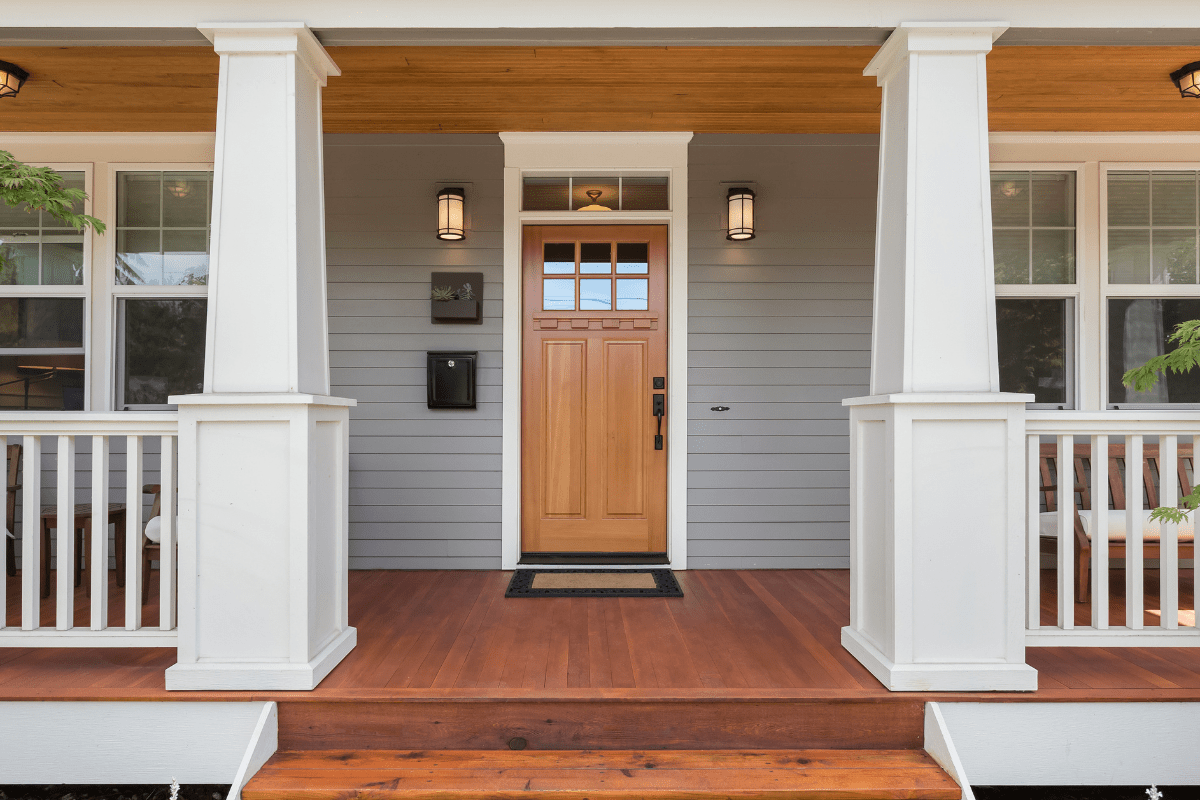Georgia homeowners are feeling the squeeze these days, with electricity rates jumping 30.8% since early 2023 and insurance premiums climbing faster than kudzu on a fence post.
But here's the thing: there are actually tons of ways to cut your housing costs that most folks just don't know about, from state-specific tax breaks to energy rebates that could put serious money back in your pocket.
The not-so-secret weapon: property tax exemptions
Let me tell you about the biggest money-saver that somehow flies under everyone's radar… the homestead exemption. I'm talking about real money here, not pocket change.
Every single Georgia homeowner who lives in their own house qualifies for a $2,000 homestead exemption, yet you'd be amazed how many people haven't filed for it. The process takes about as long as waiting for your coffee at Starbucks, and you only have to do it once. Just head to your county tax commissioner's office before April 1 (though they recently extended this to the end of the 45-day appeal window, which is nice).
If you're 65 or older, buckle up because it gets even better. You can snag an additional $4,000 county tax exemption if your household income is under $10,000… and here's the kicker: they don't count up to $96,432 in retirement income. There's also a $10,000 school tax exemption if you're 62 or older. My favorite is the "floating inflation-proof exemption" for seniors with income under $30,000. It basically freezes your property tax even if your home value shoots up. Pretty sweet deal, right?
Don't sleep on Amendment 1
Georgia voters just passed Amendment 1 in November 2024, and it's kind of a big deal. Starting this January, participating counties will cap property value increases at the inflation rate for existing homeowners. The protection only resets when you sell, so if you're planning to stay put, this could save you thousands over the years.
Here's the catch though: counties can opt out by March 1, 2025. So maybe give your local officials a call and see where they stand. Trust me, it's worth the awkward phone conversation.
Slash your insurance costs without sacrificing coverage
Insurance companies in Georgia are having a field day, with premiums up 36% since 2019. The average homeowner now pays $2,004 annually, but there are some pretty clever ways to bring that number down.
Bundle like your wallet depends on it
This one's almost embarrassingly simple. By bundling your home and auto insurance, you can save:
- State Farm: 27% average discount
- GEICO and Allstate: Up to 25%
- Nationwide: Up to 20%
We're talking $369 to $1,031 in annual savings just for making one phone call to consolidate your policies. I switched everything to State Farm last year and saved enough to finally fix that squeaky garage door AND take the family out for a fancy dinner.
Your credit score is costing you money
Here's something that shocked me: the difference between excellent and poor credit can mean paying $1,607 versus $10,066 for the exact same coverage. That's not a typo… we're talking about an $8,459 difference! Even moving from fair to good credit saves about 28% on premiums.
So maybe it's time to finally deal with that old medical bill or set up automatic payments. Your future self will thank you when those insurance bills start shrinking.
FORTIFIED discounts are coming
Mark your calendar for March 1, 2025, because that's when Georgia insurers have to start offering FORTIFIED home discounts. You'll get 5-10% off the wind portion of your premium for things like:
- Hip roof designs
- Storm shutters or impact-resistant glass
- Building code compliance (for newer homes)
If you're planning any home improvements anyway, might as well pick ones that'll save you money year after year.
Energy efficiency: where the real savings live
With Georgia Power customers seeing monthly bills averaging $232 (and summer bills hitting $234.53 compared to winter's $134.38), energy efficiency isn't just for tree huggers anymore.
Georgia Power's rebate goldmine
The Home Energy Improvement Program is basically free money waiting to be claimed. You can get up to $1,250 in rebates, including:
- Heat pump water heaters: Up to $1,000
- Attic insulation: Up to $250
- Smart thermostats: Up to $200
- Energy assessment: Up to $150
Howard Katzman, a Building Performance Consultant in Atlanta, told me that when customers hit a 20% power reduction, they qualify for an additional $1,100 rebate. That's like Georgia Power paying you to save money. Wild, right?
The thermostat sweet spot
This might sound too simple to matter, but setting your thermostat to 78°F in summer and 68°F in winter can save you $83-$111 annually. Each degree of adjustment saves 3-4% on heating and cooling costs.
I know, I know… 78 degrees in summer sounds warm. But honestly, after a week you get used to it, and that extra hundred bucks looks pretty good in your bank account. Plus, a programmable thermostat (which qualifies for those Georgia Power rebates) can save another $100-$180 yearly by automatically adjusting when you're not home.
Dealing with Georgia's infamous humidity
Our state's 70% summer humidity is brutal on HVAC systems. Here's what I learned the hard way: change your filters monthly during peak season, not quarterly like the package says. This simple switch improves efficiency by up to 15%.
Annual HVAC maintenance runs $150-$300, which seems like a lot until you consider that it extends your system's life from 7-12 years to 15-20 years. Plus, it helps you avoid those emergency repair calls that always seem to happen during the hottest week of August.
Maintenance that saves thousands
Some home maintenance feels like throwing money away, but in Georgia's climate, skipping it will cost you way more in the long run.
The termite reality check
I hate talking about termites, but in Georgia, they're basically a fact of life. Annual inspections cost $75-$150, which sounds annoying until you realize the average termite damage repair runs $3,000.
Here's your termite prevention checklist:
- Keep wood 18 inches from soil
- Store firewood 20 feet away
- Fix moisture problems immediately
- Check bait stations quarterly
Foundation protection in our clay soil
Georgia's clay soil expands and contracts like crazy with moisture changes. Get your foundation inspected twice a year (spring and fall) and professionally evaluated every 2-3 years for $300-$500.
I learned this lesson when my neighbor's foundation repair bill hit $12,000. Now I'm religious about maintaining proper drainage around my house. Water should always flow away from your foundation… it's not rocket science, but it'll save you from a financial nightmare.
Assistance programs you're probably missing
Georgia has more assistance programs than most people realize, and they're not just for folks struggling to make ends meet.
Energy assistance for qualifying households
The Weatherization Assistance Program provides free improvements worth $5,000-$10,000 for households earning less than 200% of the federal poverty level. We're talking insulation, air sealing, even HVAC improvements… all free.
LIHEAP distributes $44 million annually to help 193,528 Georgia households with energy bills. Even if you think you might not qualify, it's worth checking. The worst they can say is no, right?
Senior discounts hiding in plain sight
If you're 65 or older with income under $30,120, Georgia Power offers monthly discounts up to $33.50. Combined with those property tax exemptions I mentioned earlier, seniors can save thousands annually.
The frustrating part? Many eligible folks have no idea these programs exist. So tell your parents, tell your neighbors, tell that nice couple at church. Spread the word!
First-time buyer advantages
The Georgia Dream program offers down payment assistance up to $10,000 (or $12,500 for teachers, healthcare workers, and first responders). These are 0% interest deferred loans, which basically means free money as long as you stay in the house.
Local programs in Atlanta, Fulton, and Gwinnett counties offer even more, up to $22,500 in some cases. If you're house hunting, definitely look into these before you sign anything.
Long-term strategies that pay off
Some money-saving strategies take time but deliver huge returns down the road.
Solar in the age of net billing
Georgia Power's net billing only credits you about 7.3 cents per kWh for excess solar power, compared to the 16 cents you pay for electricity. This makes battery storage more attractive than ever, letting you use your solar power during expensive peak hours instead of selling it back cheap.
With the federal tax credit at 30% through 2032, solar can still make sense… you just need to focus on using the power yourself rather than counting on those grid credits.
Location, location, taxation
Here's something crazy: property taxes in Georgia range from $562 annually in Wheeler County to $3,847 in Fulton County. That's a $3,285 difference every single year for similar home values!
If you're thinking about moving within Georgia anyway, the tax savings alone could justify choosing one county over another. Add in utility and insurance variations, and we're talking serious money.
Your action plan starts now
Look, I get it. Reading about saving money is one thing, but actually doing it is another. So here's your dead-simple starting plan:
First, handle the easy wins. File for your homestead exemption (seriously, do it today), adjust your thermostat to those recommended settings, and call your insurance company about bundling. These three things alone can save you $500-$1,500 annually with maybe an hour of effort.
Next, schedule that Georgia Power energy assessment. They'll tell you exactly which improvements make sense for your house, and more importantly, which ones come with rebates. Focus on the stuff that pays you back, like smart thermostats and insulation upgrades.
For the long game, keep an eye on your county's Amendment 1 participation, work on that credit score, and stay on top of maintenance. Every insurance claim you avoid by maintaining your home is money in your pocket and lower premiums down the road.
Georgia might be getting more expensive, but smart homeowners who know the system can still come out ahead. Between state-specific programs, tax breaks, and energy rebates, you've got more tools than you might think. The trick is actually using them.
Now if you'll excuse me, I need to go change my HVAC filter. It's been a month, and those Georgia Power savings aren't going to earn themselves!





